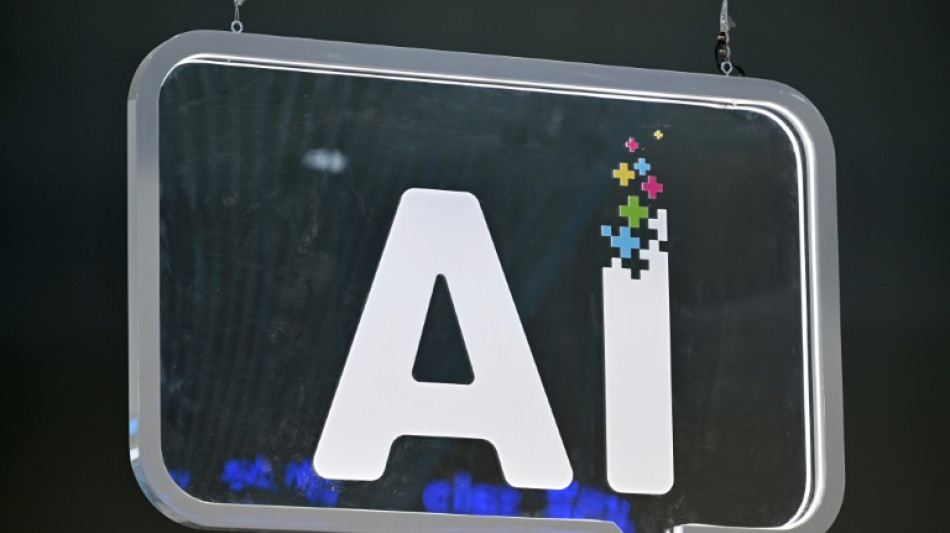
-
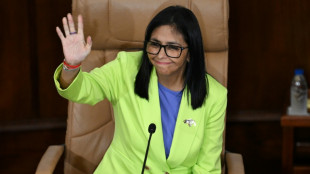 Interim Venezuela leader to visit US
Interim Venezuela leader to visit US
-
Australia holds day of mourning for Bondi Beach shooting victims

-
 Liverpool cruise as Bayern reach Champions League last 16
Liverpool cruise as Bayern reach Champions League last 16
-
Fermin Lopez brace leads Barca to win at Slavia Prague

-
 Newcastle pounce on PSV errors to boost Champions League last-16 bid
Newcastle pounce on PSV errors to boost Champions League last-16 bid
-
Fermin Lopez brace hands Barca win at Slavia Prague

-
 Kane double fires Bayern into Champions League last 16
Kane double fires Bayern into Champions League last 16
-
Newcastle pounce on PSV errors to close in on Champions League last 16

-
 In Davos speech, Trump repeatedly refers to Greenland as 'Iceland'
In Davos speech, Trump repeatedly refers to Greenland as 'Iceland'
-
Liverpool see off Marseille to close on Champions League last 16

-
 Caicedo strikes late as Chelsea end Pafos resistance
Caicedo strikes late as Chelsea end Pafos resistance
-
US Republicans begin push to hold Clintons in contempt over Epstein
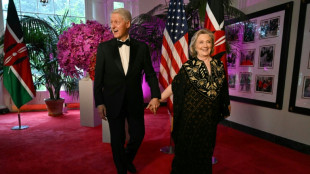
-
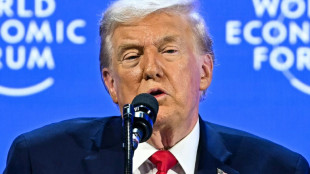 Trump says agreed 'framework' for US deal over Greenland
Trump says agreed 'framework' for US deal over Greenland
-
Algeria's Zidane and Belghali banned over Nigeria AFCON scuffle

-
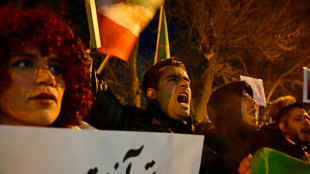 Iran says 3,117 killed during protests, activists fear 'far higher' toll
Iran says 3,117 killed during protests, activists fear 'far higher' toll
-
Atletico frustrated in Champions League draw at Galatasaray

-
 Israel says struck Syria-Lebanon border crossings used by Hezbollah
Israel says struck Syria-Lebanon border crossings used by Hezbollah
-
Snapchat settles to avoid social media addiction trial

-
 'Extreme cold': Winter storm forecast to slam huge expanse of US
'Extreme cold': Winter storm forecast to slam huge expanse of US
-
Jonathan Anderson reimagines aristocrats in second Dior Homme collection
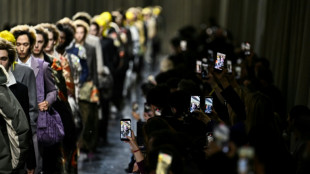
-
 Former England rugby captain George to retire in 2027
Former England rugby captain George to retire in 2027
-
Israel launches wave of fresh strikes on Lebanon

-
 Ubisoft unveils details of big restructuring bet
Ubisoft unveils details of big restructuring bet
-
Abhishek fireworks help India beat New Zealand in T20 opener

-
 Huge lines, laughs and gasps as Trump lectures Davos elite
Huge lines, laughs and gasps as Trump lectures Davos elite
-
Trump rules out 'force' against Greenland but demands talks
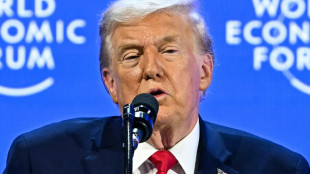
-
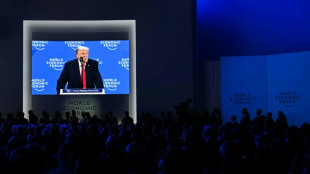 Stocks steadier as Trump rules out force to take Greenland
Stocks steadier as Trump rules out force to take Greenland
-
World's oldest cave art discovered in Indonesia

-
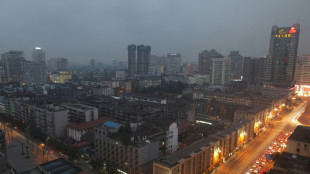 US hip-hop label Def Jam launches China division in Chengdu
US hip-hop label Def Jam launches China division in Chengdu
-
Dispersed Winter Olympics sites 'have added complexity': Coventry

-
 Man City players to refund fans after Bodo/Glimt debacle
Man City players to refund fans after Bodo/Glimt debacle
-
France's Lactalis recalls baby formula over toxin
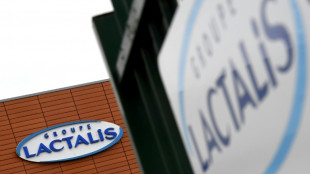
-
 Pakistan rescuers scour blaze site for dozens missing
Pakistan rescuers scour blaze site for dozens missing
-
Keenan return to Irish squad boosts Farrell ahead of 6 Nations

-
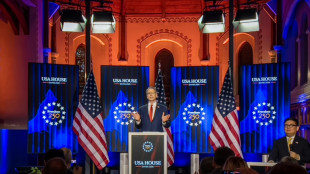 US Treasury chief accuses Fed chair of 'politicising' central bank
US Treasury chief accuses Fed chair of 'politicising' central bank
-
Trump rules out force against Greenland but demands 'immediate' talks
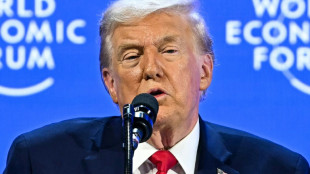
-
 Israeli strike kills three Gaza journalists including AFP freelancer
Israeli strike kills three Gaza journalists including AFP freelancer
-
US Congress targets Clintons in Epstein contempt fight
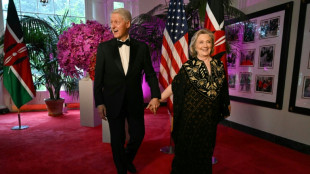
-
 Huge lines, laughs and gasps as Trump addresses Davos elites
Huge lines, laughs and gasps as Trump addresses Davos elites
-
Trump at Davos demands 'immediate' Greenland talks but rules out force
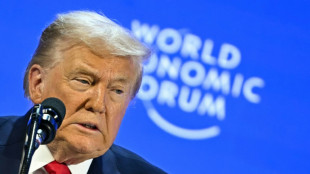
-
 Australia pauses for victims of Bondi Beach shooting
Australia pauses for victims of Bondi Beach shooting
-
Prince Harry says tabloid coverage felt like 'full blown stalking'

-
 Galthie drops experienced trio for France's Six Nations opener
Galthie drops experienced trio for France's Six Nations opener
-
Over 1,400 Indonesians leave Cambodian scam groups in five days: embassy
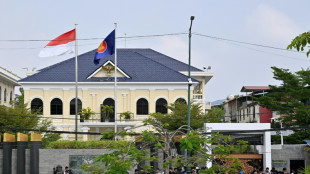
-
 ICC rejects Bangladesh's plea to play T20 World Cup matches outside India
ICC rejects Bangladesh's plea to play T20 World Cup matches outside India
-
Prince Harry says UK tabloid court battle in 'public's interest'

-
 Trump lands in Davos to push Greenland claims
Trump lands in Davos to push Greenland claims
-
Balkan wild rivers in steady decline: study

-
 Injured Capuozzo misses out on Italy Six Nations squad
Injured Capuozzo misses out on Italy Six Nations squad
-
Mourners pay last respects to Italian icon Valentino


Brazil seeks to curb AI deepfakes as key elections loom
AI-generated videos and photos used for political disinformation are the scourge of a busy global election year, and Brazil is scrambling to regulate the technology ahead of municipal polls.
In a country of 203 million, which counts more phones than people, Brazilian authorities last week banned the use of deepfake technology and set out guidelines for uses of AI for electoral purposes.
"Video montages can be used to manipulate public opinion, to defame individuals, or to interfere in the democratic process," Ana Carolina da Hora, a computer specialist at the PUC Catholic University in Rio de Janeiro, told AFP.
The rapid development of AI, turbocharged by the 2022 launch of ChatGPT, has shaken up the online landscape while sparking awe and fear over the future of the technology.
In a video circulating on social media in Brazil, the country's biggest pop star Anitta and football icon Neymar promote an online gambling scheme, or rather, ultra-realistic deepfakes of the celebrities do.
But in a country hard hit by political disinformation, authorities are particularly alarmed by cases like that of a mayor whose voice was cloned to create an audio file shared on social media in which he insults teachers in his municipality.
Similar cases are being investigated in two other states.
- 'Most modern standards' -
The Superior Electoral Tribunal (TSE) has decided to act. Last week, the use of deepfake technology was formally banned in the October municipal electoral campaign.
Any other type of use of artificial intelligence for electoral purposes must be accompanied by a notice clearly identifiable to the public.
Candidates caught using deepfake technology in the campaign could be blocked from running or have their mandates rescinded if elected.
TSE president Alexandre de Moraes said these were some of "the most modern standards in the world in relation to combating disinformation, fake news and the illicit use of artificial intelligence."
He warned that deepfake technology could "change the result of the elections."
In Brazil, former president Jair Bolsonaro was banned from holding office until 2030 for abuse of power and misuse of the media after he claimed, without evidence, that the Brazilian electoral system was not secure.
"The fact is that humanity is becoming a victim of algorithms... and being manipulated by artificial intelligence, in a way that has never been seen in history," President Luiz Inacio Lula da Silva said last week in an interview with the RedeTV channel.
Lula beat Bolsonaro by a razor-thin margin in 2022 elections that bitterly divided the nation, and the October municipal elections will be a crucial litmus test of his popularity.
- 'No single solution' -
Deepfake technology is also alarming experts in the United States, where opponents of President Joe Biden recently released an AI-generated call using what sounded like his voice, urging people not to cast ballots in a primary.
The nonprofit Center for Countering Digital Hate (CCDH) on Wednesday warned that several generative AI tools continue to allow the creation of deceptive images related to political candidates and voting.
Twenty digital giants, including Meta, Microsoft, Google, OpenAI, TikTok and X, last month joined together in a pledge to fight AI content designed to mislead voters.
They promised to use technologies to counter potentially harmful AI content, such as watermarks invisible to the human eye but detectable by machine.
In Brazil, Congress has waded into the debate, and Senate President Rodrigo Pacheco introduced a bill on the regulation of the use of artificial intelligence in all aspects of life which he hopes will be approved in April.
There is "no single solution to regulate artificial intelligence," said Bruno Bioni, director of Data Privacy Brazil, a data protection and digital rights organization, who stressed that AI affects sectors ranging from telecommunications to health.
He also highlighted the risk of discrimination linked to AI facial recognition in a country where more than half of the population is black or mixed race.
A.Ammann--VB




